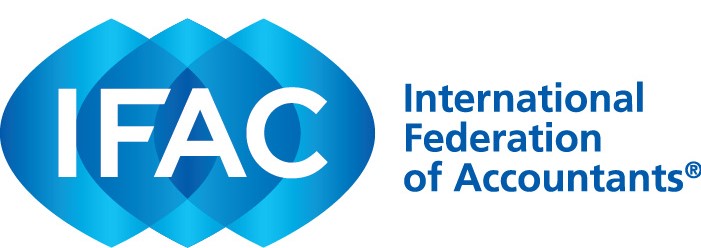by Bruce Vivian – Principal, IFAC
In many jurisdictions, professional accountancy organizations (PAOs) have developed strong relationships across the public sector—relationships that a Supreme Audit Institution (SAI) can leverage by working with their local PAO and developing pathways to continue or enhance their auditors’ professional development.
PAOs and the Public Sector
PAOs increasingly recognize the value of professional accountants in public finance roles and their contributions to better public financial management (PFM) practices. This manifests in changing how PAOs work with the public sector, including actively engaging governments on public policy issues related to PFM and integrating PFM topics into their members’ initial accountancy education as well as post-qualification professional development.
SAIs, PAOs and ISSAI 150
In some countries, SAIs employ professional accountants as auditors. Professional accountants are members of a PAO who have completed an accountancy qualification and are held accountable for their adherence to a code of ethics, professional standards and post-qualification learning requirements. These professional accountants bring a deep understanding of assurance, financial and non-financial reporting, and financial management that is essential to the work of SAIs.
With the recent pronouncements from the International Organisation of Supreme Audit Institutions (INTOSAI) supporting the professional development of public sector auditors, PAOs have an opportunity to support SAIs, particularly as they implement the new ISSAI 150 Auditor Competence.
The International Federation of Accountants (IFAC) recognizes the importance of ISSAI 150 and welcomes its recent endorsement and its requirement that, “A SAI shall establish dedicated pathways for professional development of auditors, specifically tailored to the SAI’s mandate, regulatory framework, organizational structure and needs”.
Paragraph 29 identifies that one professional development option a SAI could consider is partnering with a PAO to design and deliver professional development opportunities. There are many benefits to pursuing such a partnership.
1. PAOs base their education requirements on international standards
IFAC requires its member PAOs to support the adoption and implementation of the International Education Standards in their jurisdiction. These standards improve the quality of professional accountancy education worldwide by setting requirements for entry into education programs and both initial and post-qualification education.
The education standards promote a learning outcomes approach to professional education; that is, a focus on what is learned rather than what class was taken or test is passed. This approach integrates learning outcomes, program design, assessment activities, and governance in a process of continuous improvement. It embodies the idea that learning and development is most effective when based on what someone needs to learn and the skills they need to demonstrate.
Three of the education standards describe the learning outcomes required in an initial education program. These learning outcomes will resonate with the needs of SAIs. They are likely to mirror many of the competencies a SAI will define when implementing ISSAI 150’s first organizational requirement (“A SAI shall determine and document relevant competencies required for all auditors to fulfill the SAI mandate”).
2. PAOs have established relationships with broad networks of education providers
PAOs work with a variety of stakeholders to deliver effective professional education programs. This can include universities, private education providers, assessment centers, and qualification authorities. It also extends to employers that provide the practical experience component of initial education and a wide range of post-qualification providers.
While SAIs may want to include one or more of these stakeholders in their professional development pathways, PAOs already have dedicated resources coordinating across the entire education system. By working with their local PAOs, SAIs will benefit from these established networks and access quality professional development offerings.
3. Accountancy education programs include a practical experience component
The education standards require all initial education programs include a practical experience component. This allows aspiring professional accountants to learn on-the-job through structured workplace training and to demonstrate that they have gained the technical competence, professional skills, and professional values, ethics and attitudes necessary for professional accountant roles.
Some local PAOs accredit their jurisdiction’s SAI to offer this practical experience to aspiring professional accountants. In such scenarios, the SAI can ensure that these individuals receive experience that is directly relevant to the mandate and work of the SAI. It is also a great tool to attract talented young people to work at the SAI.
4. PAOs provide a professional home for SAI auditors
Once an individual has completed their initial accountancy education and been assessed as highly skilled, they typically obtain a qualification and professional designation ( chartered accountant or certified public accountant) and are admitted as members of the PAO. To maintain their designation and membership, professional accountants must adhere to a code of ethics and commit to life-long learning through the PAO’s continuing professional education and development program.
SAIs that partner with PAOs can work to ensure that their auditors obtain appropriate professional designations and become subject to the obligations of the PAO. This brings an added layer of accountability to the SAI auditor.
5. PAOs can support SAI auditors to keep up to date with changes in international standards
Through post-qualification education and other outreach programs, PAOs help their members stay updated on relevant international standards. PAOs can similarly support SAI auditors to stay updated with changes to the International Standards on Auditing, issued by the International Auditing and Assurance Standards Board and used for financial audits in SAIs, and the International Public Sector Accounting Standards (IPSAS), issued by the International Public Sector Accounting Standards Board.
In jurisdictions where the government is implementing accountancy reforms such as full accrual IPSAS, the PAO can assist SAIs in building the necessary capacity to play their part in these reforms.
The extent to which a SAI wishes to partner with a PAO will differ from country to country. Many PAOs will be flexible about how they can support their SAI. The emergence of ISSAI 150 provides the perfect opportunity for SAIs to engage PAOs on how they might become a part of the SAI’s professionalization pathways.
Learn more about the PAOs in your jurisdiction by visiting IFAC’s Global Impact Map https://www.ifac.org/what-we-do/global-impact-map


